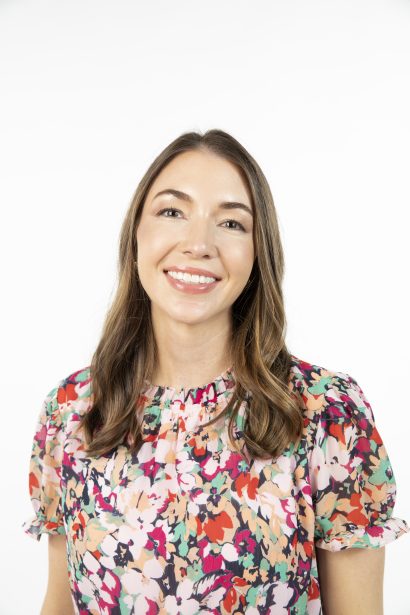Q+A: Patient Advocates
November 3, 2022
Abby Shields is the program manager for Affiliations and Research Advocacy at Vanderbilt-Ingram Cancer Center.

Q: What do research advocates do?
A: Our advocates are a group of cancer survivors and caregivers who work alongside our researchers to ensure the research conducted at VICC is timely, relevant and serves the needs of our catchment area. This may mean, but is not limited to, serving on committees, advisory boards or working groups, writing a letter of support for a grant application, reviewing a researcher’s grant application before submission, giving feedback on the design of a clinical trial or research study, or speaking to a group of researchers about the experience of a cancer patient/caregiver. All of our advocates are volunteers.
Q: Are special qualifications required to be an advocate?
A: To be part of our program, you must be a cancer survivor at least one-year post treatment and/or be/have been the primary caregiver for a cancer patient. An interest in science, a self-motivated desire to learn more about cancer, cancer research, and cancer research advocacy, and the ability to give candid and honest feedback are all qualities we want to see in our advocates. A science background is not required.
Q: How much time obligation is there?
A: We ask all new advocates to watch a two-hour recorded training as an orientation to research advocacy and to attend our quarterly one-hour research advocacy meeting. We also provide ongoing opportunities to attend seminars, conferences and other cancer-related events for continuing cancer education and research purposes. Attendance at those events is not mandatory but is strongly encouraged. Beyond that, the time obligation is fluid and depends on the availability of projects for advocates to work on. It is also dependent on the needs of the researcher(s) — someone may need an advocate to sit in on a one-hour working group twice a month for a year or they might need an advocate to review their grant application before submission and provide a letter of support, which can typically be done in a single sitting for a couple of hours.
Q: Why are research advocates needed?
A: Advocates are the voice of our patients and caregivers. They are the people who are impacted by our research, so it only makes sense to involve them in the work that could very well change or save their life or that of a loved one. Our researchers are doing amazing work, and advocates make sure that work always keeps the patient at the forefront.
Q: How are VICC advocates involved at the national level?
A: Beyond VICC, some advocates choose to also serve with national organizations like Susan G. Komen, the American Association for Cancer Research and the American Cancer Society, to name a few. These efforts include attending conferences and trainings for further advocacy and cancer education, acting as representatives of different organizations in meetings with lawmakers, and organizing fundraising events. Government departments like the Department of Defense and the National Cancer Institute also utilize advocates as grant reviewers and for input on national cancer initiatives.
Q: How can people sign up or learn more?
A: Those interested in learning more can visit www.vicc.org/advocacy.
